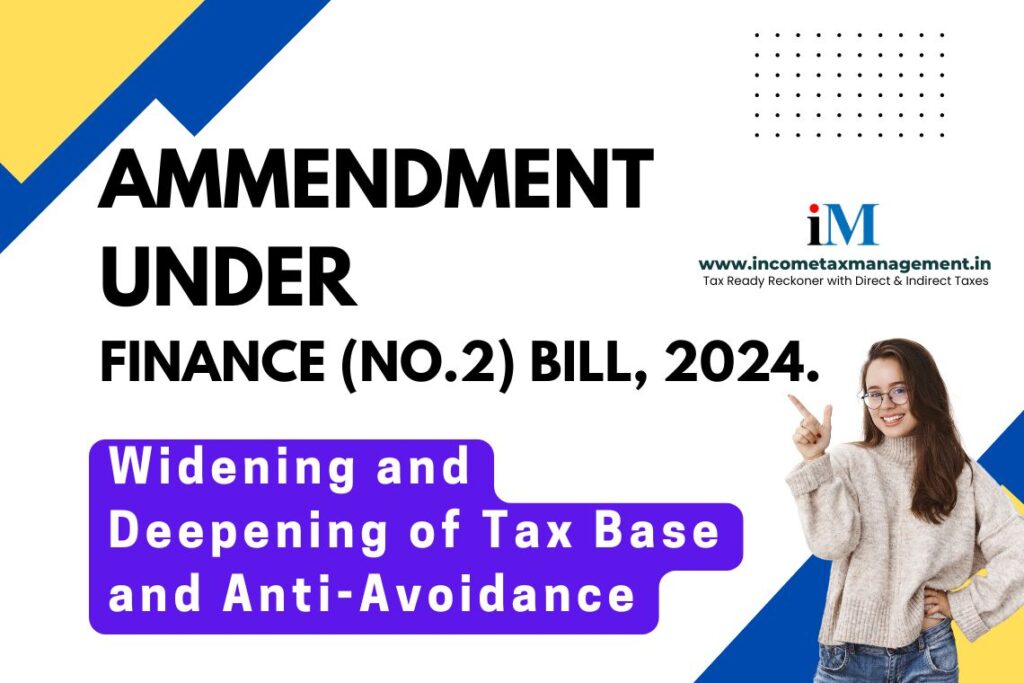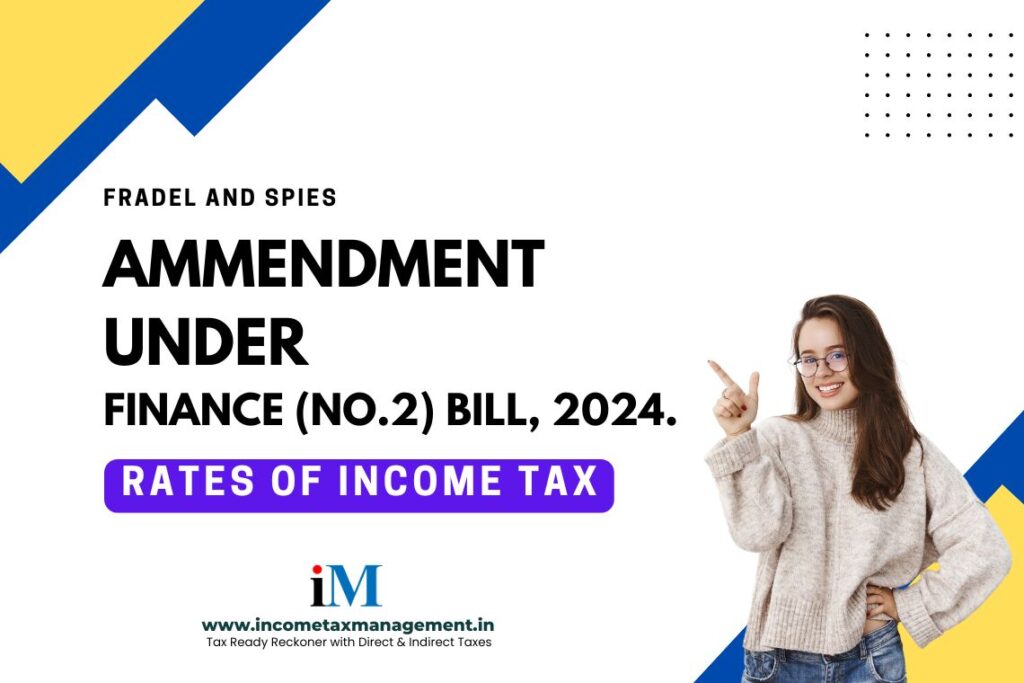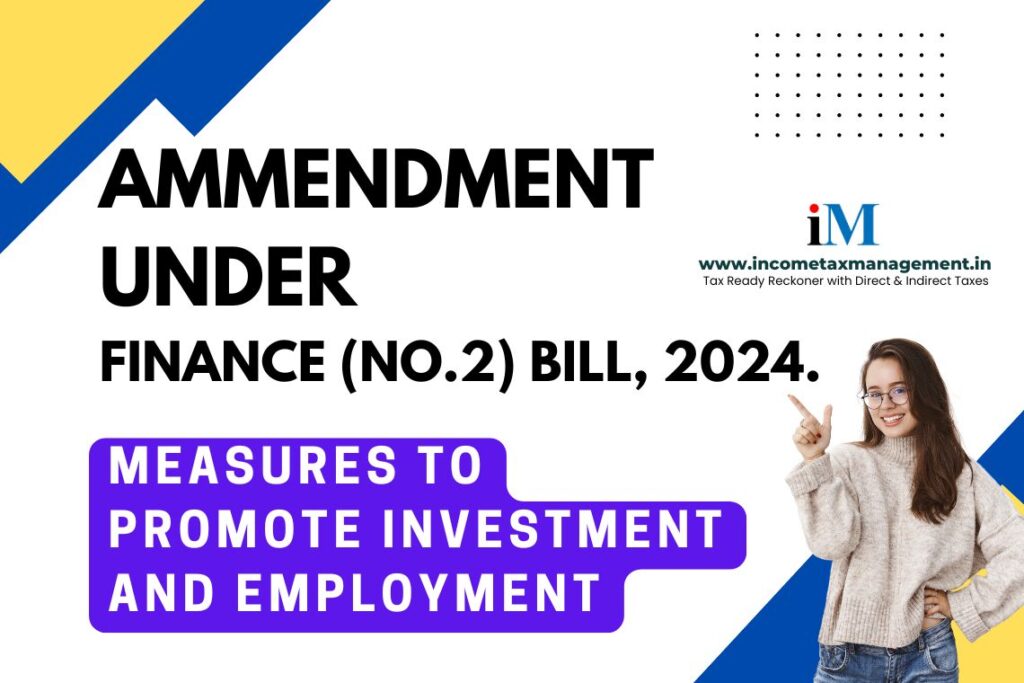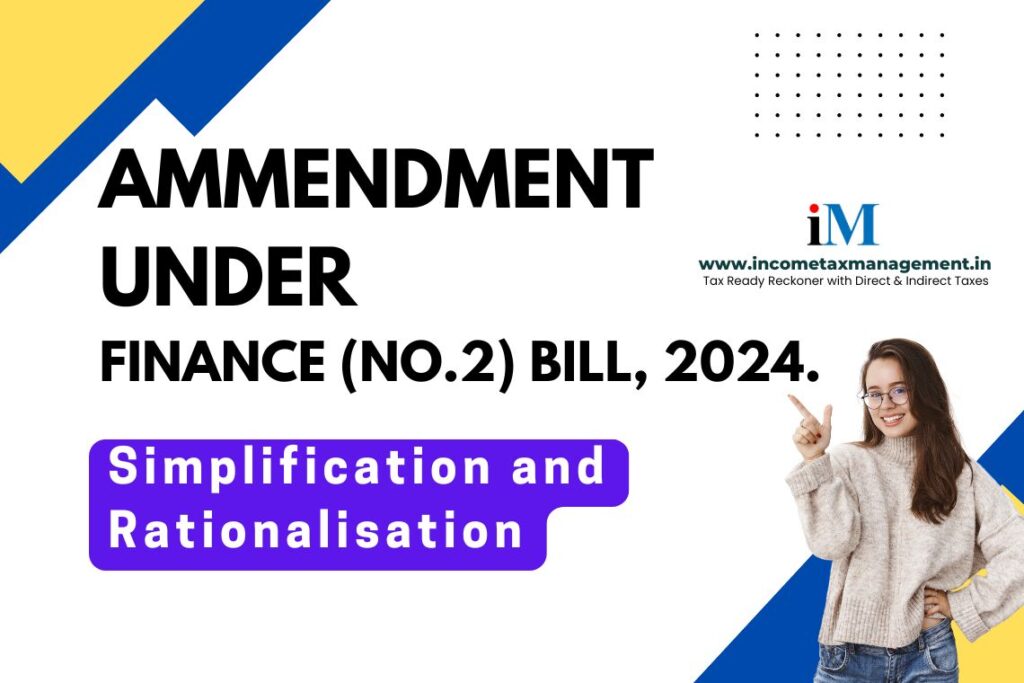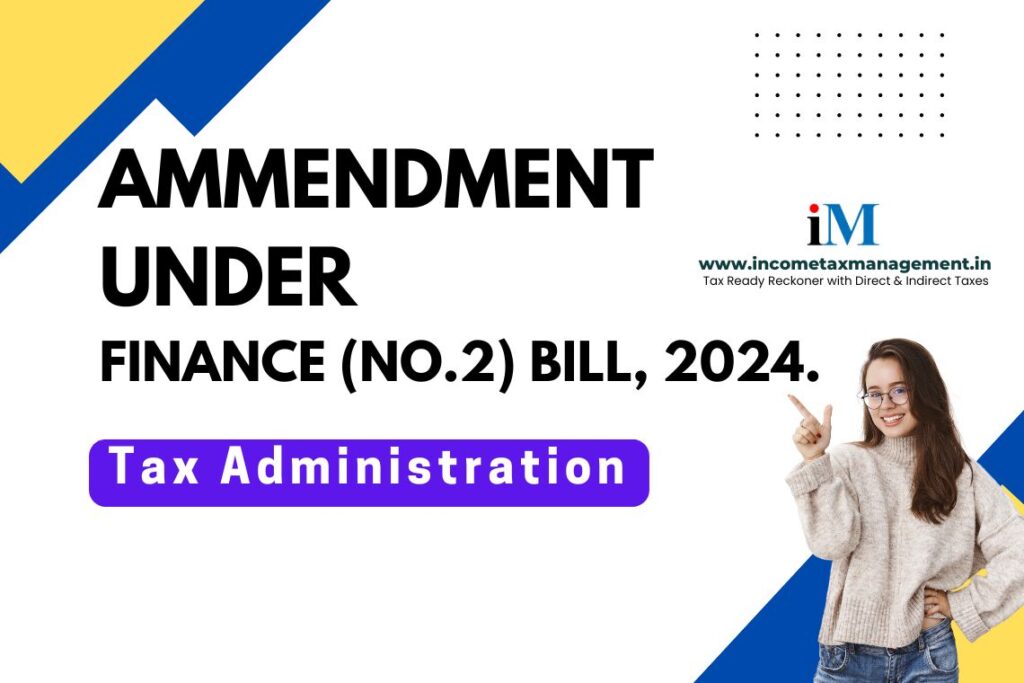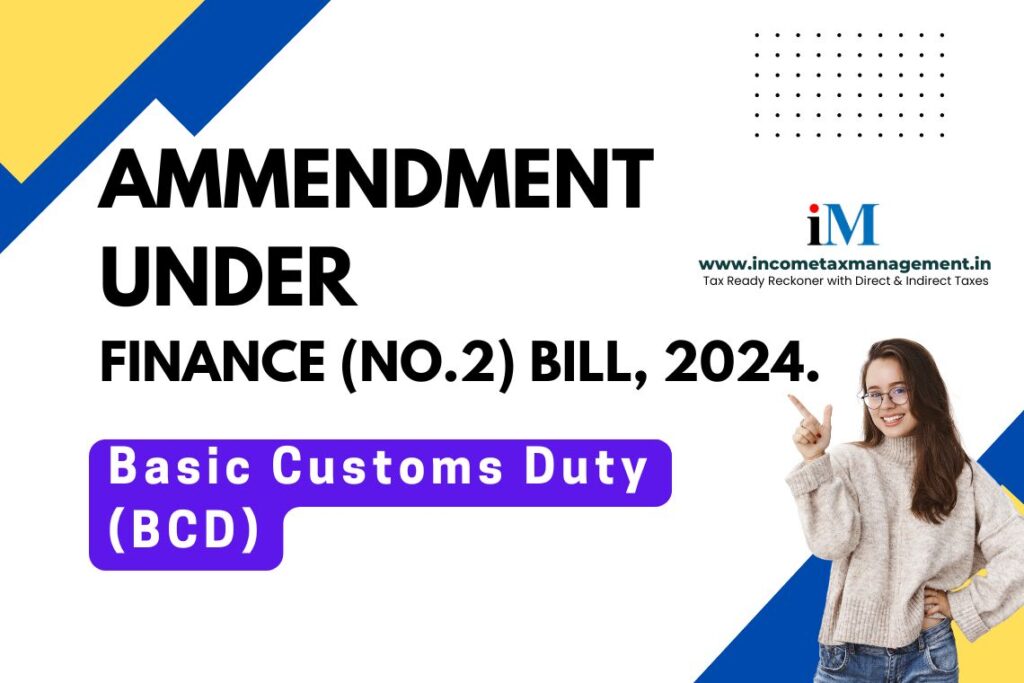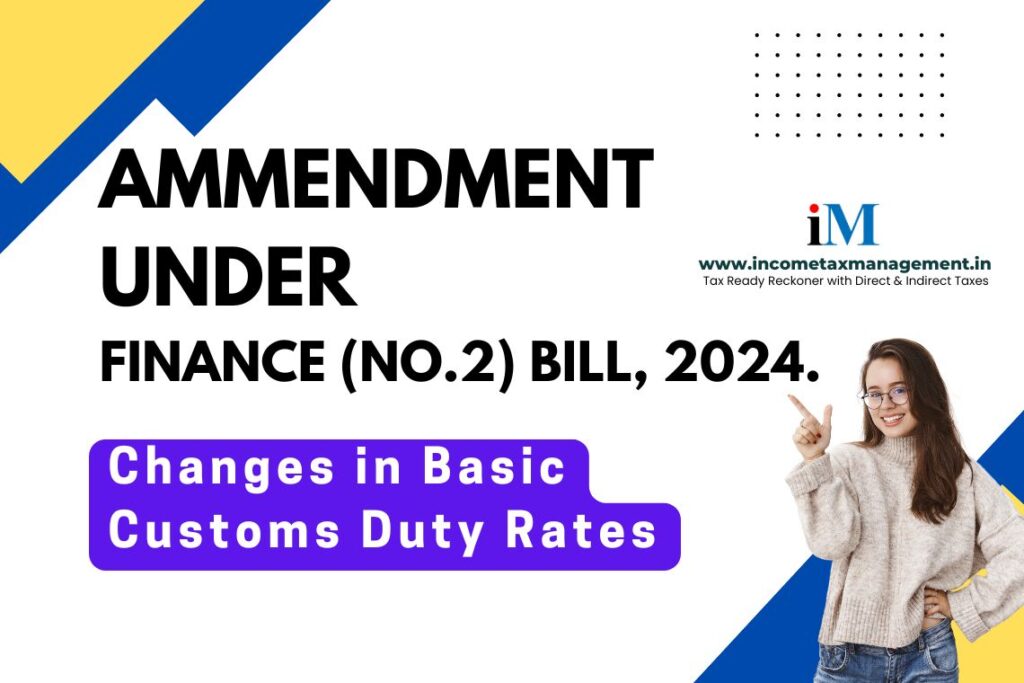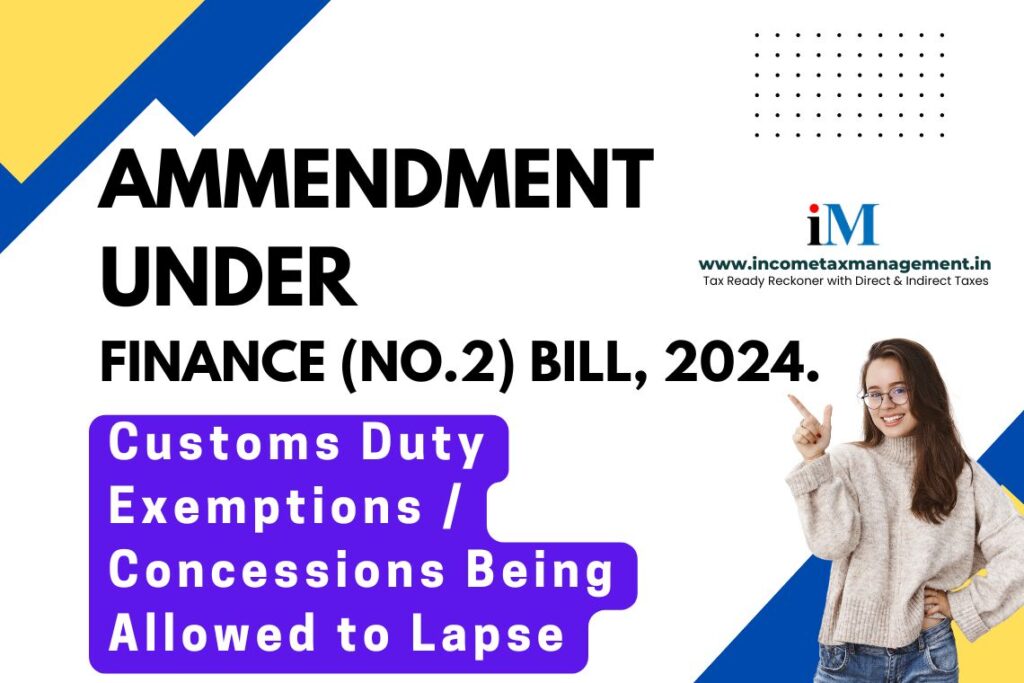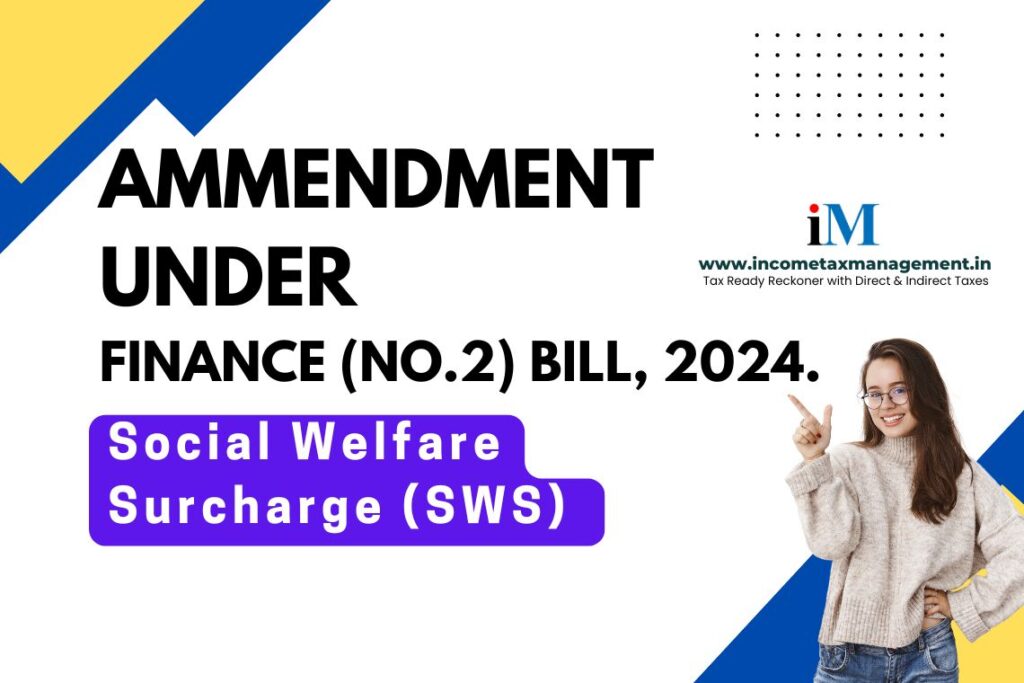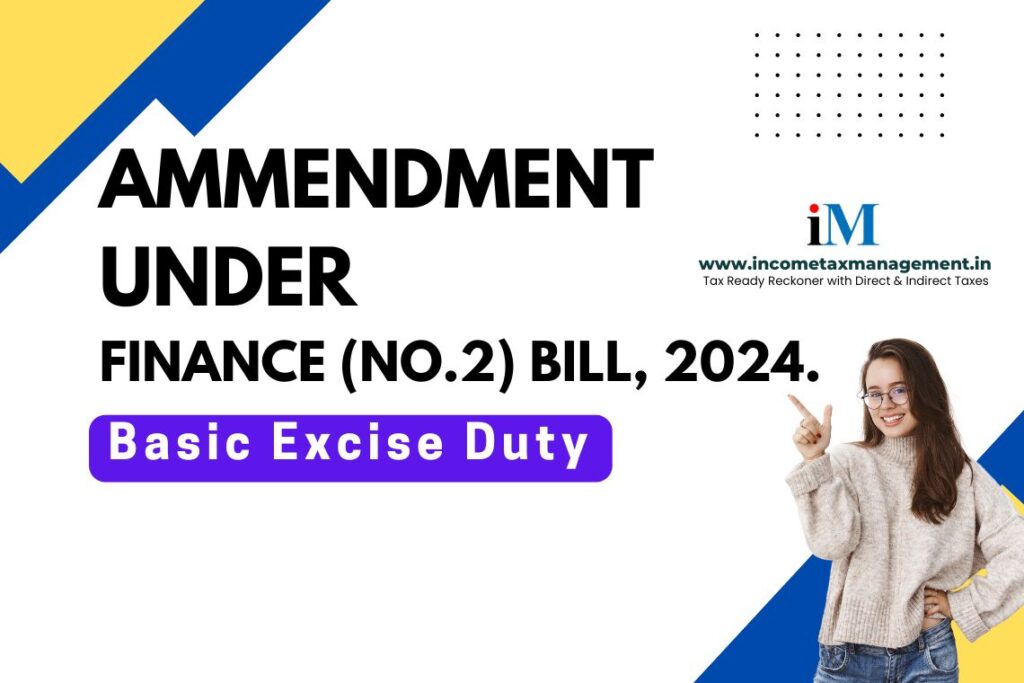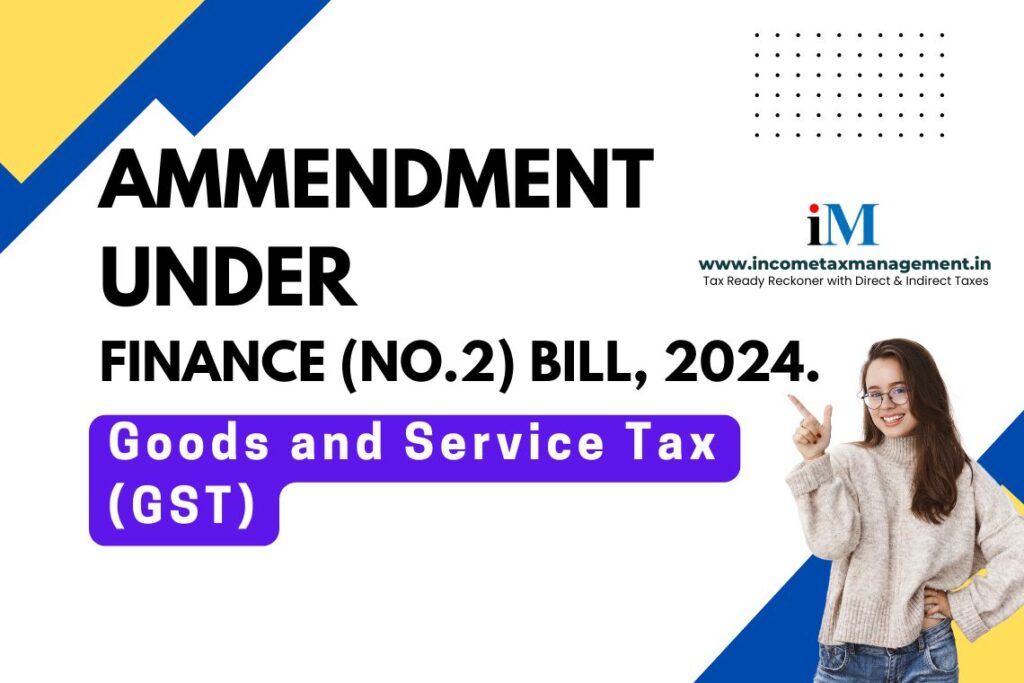Tax on distributed income of domestic company for buy-back of shares
Special provisions relating to tax on distributed income of a domestic company from buy-back of shares were introduced by Finance Act, 2013, in line with the then schema of dividend distribution tax. Prior to the amendments made by the Finance Act, 2020, a company had to pay dividend distribution tax (DDT), on the distributed profits by way of dividends in addition to the income-tax chargeable in respect of the total income for any assessment year. DDT was done away with by the Finance Act, 2020.
2. References have been received stating that pay-outs on buy-back of shares should be taxed in hands of recipients, in line with similar regime in place for taxation of dividend.
3. Both dividend as well as buy-back are methods for the company to distribute accumulated reserves and thus ought to be treated similarly. In addition, there is extinguishment of rights for the shareholders who are tendering their shares in the buy-back by domestic company, to the extent of shares bought back by such company from shareholders. The cost of acquisition of such shares also needs to be accounted for in some manner.
4. It is therefore, proposed that, the sum paid by a domestic company for purchase of its own shares shall be treated as dividend in the hands of shareholders, who received payment from such buy-back of shares and shall be charged to income-tax at applicable rates. No deduction for expenses shall be available against such dividend income while determining the income from other sources. The cost of acquisition of the shares which have been bought back would generate a capital loss in the hands of the shareholder as these assets have been extinguished. Therefore when the shareholder has any other capital gain from sale of shares or otherwise subsequently, he would be entitled to claim his original cost of acquisition of all the shares (i.e. the shares earlier bought back plus shares finally sold). It shall be computed as follows:
(i) deeming value of consideration of shares under buy-back (for purposes of computing capital loss) as nil;
(ii) allowing capital loss on buy-back, computed as value of consideration (nil) less cost of acquisition;
(iii) allowing the carry forward of this as capital loss, which may subsequently be set-off against consideration received on sale and thereby reduce the capital gains to this extent.
Example :
| 100 shares bought in 2020 | @Rs. 40/- per share |
| Total cost of acquisition | Rs. 4000/- |
| 20 shares bought back in 2024 | @Rs. 60/- per share |
| Income taxable as deemed dividend | Rs. 1200/- |
| Capital loss on such buyback (Rs. 40 *20) | Rs. 800/- |
| 50 Shares sold in 2025 | @Rs. 70 per share |
| Capital Gain (3500 – 2000) | Rs. 1500 |
| Chargeable capital gain after set off | Rs. 700 |
5. These amendments will take effect from the 1st day of October, 2024, and will accordingly apply to any buy-back of shares that takes place on or after this date.
[Clauses 3, 4, 18, 24, 39 & 52]
Revision of rates of securities transaction tax by amendment to the Finance (No.2) Act, 2004
Levy of Securities Transaction Tax (hereafter referred to as STT) on transaction in specified securities was introduced vide Finance (No.2) Act, 2004. As per the provisions of the STT, recognized stock exchanges, mutual funds (having equity oriented scheme), insurance company or lead merchant banker appointed by the company in respect of an initial public offer or an initial offer are liable to collect the tax on specified securities and pay the same to the credit of the Central Government within seven days from the end of the month in which STT is collected. After its introduction in 2004, the rates of STT have been revised from time to time.
2. Presently, the rate of levy of STT on sale of an option in securities is 0.0625 per cent of the option premium, while the rate of levy of STT on sale of a future in securities is 0.0125 per cent of the price at which such “futures” are traded. The rate of levy of STT on delivery trades in equity shares is 0.1 per cent on both purchase and sale transactions, while in the case of sale of an option in securities where option is exercised, the rate of levy is 0.125% of the intrinsic price (i.e the difference between the settlement price and the strike price) and is payable by the purchaser.
3. There has been an exponential growth of derivative (future and option) markets in recent times and trading in such derivatives accounts for a large proportion of trading in stock exchanges. In view of this exponential growth of the derivative markets, it is proposed to increase the said rates of securities transaction tax on sale of an option in securities from 0.0625 per cent to 0.1 per cent of the option premium, and on sale of a futures in securities from 0.0125 per cent to 0.02 per cent of the price at which such “futures” are traded.
4. This amendment is proposed to be made effective from the 1st day of October, 2024.
[Clause 155]
Reporting of income from letting out of house property under ‘Income from House Property’
Section 28 of the Act specifies kinds of income that shall be chargeable to income-tax under the head ‘Profits and gains of business or profession’.
2. It has been observed that some taxpayers are reporting their rental income generated by letting out of the house property, under the head ‘Profits and gains of business or profession’ in place of the head ‘Income from house property’. Accordingly, they are reducing their tax liability substantially by showing house property income under the wrong head of income.
3. In view of the same, it is proposed to amend the section 28 of the Act so as to clarify that any income from letting out of a residential house or a part of the house by the owner shall not be chargeable under the head “Profits and gains of business or profession” and shall be chargeable under the head “Income from house property”.
4. This amendment will take effect from the 1st day of April, 2025 and will, accordingly, apply in relation to assessment year 2025-26 and subsequent assessment years.
[Clause 11]
Amendment of Section 47 of the Act provides exclusion to certain transactions not regarded as transfer for the purposes of chargeability under ‘Capital Gains’ under section 45.
2. Clause (iii) of section 47 provides that nothing contained in section 45 shall apply to any transfer of a capital asset under a gift or will or an irrevocable trust. The first proviso to the said clause makes an exception to the clause in respect of specified ESOPs.
3. With the insertion of section 50D in the Act in the Finance Act, 2012, providing for taking fair market value as full value of consideration in cases where the consideration received or accruing as a result of the transfer of a capital asset is not ascertainable or cannot be determined, and section 50CA vide Finance Act, 2017, providing for taking fair market value as full value of consideration in case of unquoted shares where the consideration received or accruing is less than the fair market value of such share, the Revenue has aimed at bolstering the anti- avoidance machinery provisions of the Act to eliminate avoidance of Capital Gains tax. However, in multiple cases, taxpayers have argued before judicial fora that transaction of gift of shares by company is still not liable to capital gains tax, in view of the provisions of section 47(iii) of the Act. The matter thus remains a litigated issue leading to:
a) tax avoidance and
b) erosion of Indian tax base.
4. Further, a gift is given out of natural love and affection and accordingly it is proposed to substitute clause (iii) of section 47 and its proviso, to provide that nothing contained in section 45 shall apply to transfer of a capital asset, under a gift or will or an irrevocable trust, by an individual or a Hindu undivided family.
5. This amendment is proposed to be made effective from the 1st day of April, 2025 and will accordingly apply to assessment year 2025-26 and subsequent assessment years.
[Clause 19]
TDS on payment of salary, remuneration, interest, bonus or commission by partnership firm to partners
Presently there is no provision for deduction of tax at source (TDS) on payment of salary, remuneration, interest, bonus, or commission to partners by the partnership firm. Hence, it is proposed that a new TDS section 194T may be inserted to bring payments such as salary, remuneration, commission, bonus and interest to any account (including capital account) of the partner of the firm under the purview of TDS for aggregate amounts more than Rs 20,000 in the financial year. Applicable TDS rate will be 10%.
2. The provisions of section 194T of the Act will take effect from the 1st day of April, 2025.
[Clause 62]
TCS under sub-section (1F) of section 206C on notified goods
The existing provisions of section 206C of the Act provide, inter alia, for the collection of tax at source on business of trading in alcoholic liquor, forest produce, scrap etc. Sub-section (1F) provides that every person, being a seller, who receives any amount as consideration for sale of a motor vehicle of the value exceeding ten lakh rupees, shall, at the time of receipt of such amount, collect from the buyer, a sum equal to one per cent. of the sale consideration as income-tax.
2. It has been seen that there has been an increase in expenditure on luxury goods by high net worth persons. For proper tracking of such expenses and in order to widen and deepen the tax net, it is proposed to amend sub-section (1F) of section 206C to also levy TCS on any other goods of value exceeding ten lakh rupees, as may be notified by the Central Government in this behalf. Such goods would be in the nature of luxury goods.
3. The amendment will take effect from the 1st day of January, 2025.
[Clause 70]
Amendment of provisions of TDS on sale of immovable property
Section 194-IA of the Act provides for deduction of tax on payment of consideration for transfer of certain immovable property other than agricultural land.
2. Sub-section (1) of the said section provides that any person responsible for paying to a resident any sum by way of consideration for transfer of any immovable property shall, at the time of credit or payment of such sum to the resident, deduct an amount equal to one per cent. of such sum or the stamp duty value of such property, whichever is higher, as income-tax thereon. Sub-section (2) of the said section provides that no deduction of tax shall be made where the consideration for the transfer of an immovable property and the stamp duty value of such property, are both less than fifty lakh rupees.
3. It has been observed that some taxpayers are interpreting that the consideration being paid or credited refers to each individual buyer’s payment rather than the total consideration paid for the immovable property.
4. Hence if the buyer is paying less than Rs. 50 lakh, no tax is being deducted, even if the value of the immovable property and stamp duty value exceeds Rs. 50 lakh. This is against the intention of legislature.
5. Accordingly, it is proposed to amend sub-section (2) of section 194-IA of the Act to clarify that where there is more than one transferor or transferee in respect of an immovable property, then such consideration shall be the aggregate of the amounts paid or payable by all the transferees to the transferor or all the transferors for transfer of such immovable property.
6. The amendments will take effect from the 1st day of October, 2024.
[Clause 58]
Tax Deduction at source on Floating Rate Savings (Taxable) Bonds (FRSB) 2020
Section 193 of the Act provides for deduction of tax at source on payment of any income to a resident by way of interest on securities.
2. The Government has introduced Floating Rate Savings (Taxable) Bonds (FRSB) 2020. The provisions of section 193 of the Act are proposed to be amended to allow for deduction of tax at source at the time of payment of interest exceeding ten thousand rupees on –
(i) the Floating Rate Savings Bonds (FRSB) 2020 (Taxable) and
(ii) any security of the Central Government or State Government, as the Central Government may, by notification in the Official Gazette, specify in this behalf.
3. The amendments will take effect from the 1st day of October, 2024.
[Clause 51]
Preventing misuse of deductions of expenses claimed by life insurance business
Section 44 of the Act provides for computing of profits and gains of any business of insurance, including any such business carried on by a mutual insurance company or by a co-operative society, to be in accordance with First Schedule of the Act, notwithstanding other specific provisions of the Act.
2. Rule 2 of the First Schedule, applicable for Life insurance business, states that the profits and gains of life insurance business shall be taken to be the annual average of the surplus arrived at by adjusting the surplus or deficit disclosed by the actuarial valuation made in accordance with the Insurance Act, 1938, in respect of the last inter-valuation period ending before the commencement of the assessment year and excluding from it such surplus or deficit included therein which was made in any earlier inter-valuation period.
3. It has been noticed that there have been instances where non-business expenses have been claimed by life insurance companies and there is no provision to add back these to the income of such companies. In order to ensure that provisions are not misused to claim deduction for expenses which are otherwise not admissible under the provisions of section 37 of the Act, it is proposed to amend Rule 2 of the First Schedule of the Act to provide that any expenditure which is not admissible under the provisions of section 37 in computing the profits and gains of a business shall be included to (i.e. added back to) the profits and gains of the life insurance business.
4. The amendment will take effect from the 1st day of April, 2025 and will accordingly apply from assessment year 2025-2026 onwards.
[Clause 87]
Inclusion of taxes withheld outside India for purposes of calculating total income
Section 198 of the Act provides that all sums deducted (tax deducted), in accordance with the provisions of Chapter XVII-B shall, for the purpose of computing the income of an assessee, be deemed to be income received.
2. It was seen that some assessees are not including taxes withheld outside India for the purposes of calculating their total income which was leading to under reporting of total income as only their net income was being offered for taxation. However they were claiming credit for the taxes withheld abroad resulting in double deduction on account of income not being included in total income but credit for foreign taxes withheld was being taken.
3. In order to address this issue, it is proposed to amend section 198, to provide that all sums deducted in accordance with the provisions of Chapter XVII-B and income tax paid outside India by way of deduction, in respect of which an assessee is allowed a credit against the tax payable under the Act, are for the purpose of computing the income of the assessee, deemed to be income received.
4. The amendment will take effect from the 1st day of April, 2025.
[Clause 66]
Excluding sums paid under section 194J from section 194C (Payments to Contractors)
Section 194C of the Act provides for TDS on payments to contractors at the rate of 1% when the payment is being made or credit is being given to an individual or HUF and 2% in other cases. Section 194J of the Act relates to TDS on fees for professional or technical services wherein the applicable TDS rates are 2% or 10% depending on the nature of payment being made.
2. Clause (iv) of the Explanation of section 194C defines “work” to specify which all activities would attract TDS under section 194C. However, there is no explicit exclusion of assessees who are required to deduct tax under section 194J from requirement or ability to deduct tax under section 194C of the Act. Therefore some deductors are deducting tax under section 194C of the Act when in fact they should be deducting tax under section 194J of the Act.
3. In view of the above, it is proposed to explicitly state that any sum referred to in sub-section (1) of section 194J does not constitute “work” for the purposes of TDS under section 194C.
4. The amendment will take effect from 1st day of October 2024.
[Clause 53]
Disallowance of settlement amounts being paid to settle contraventions
Section 37 of the Act provides for allowability of expenditure laid out or expended wholly and exclusively for the purpose of business or profession.
2. Explanation 1 of sub-section (1) of section 37 provides that any expenditure incurred by an assessee for any purpose which is an offence or which is prohibited by law shall not be deemed to have been incurred for the purpose of business or profession and no deduction or allowance shall be made in respect of such expenditure.
3. Explanation 3 of sub-section (1) of section 37 clarifies that the expression “expenditure incurred by an assessee for any purpose which is an offence or which is prohibited by law”, referred to in Explanation 1, includes expenditure incurred for any purpose which is an offence or is prohibited by, any law enacted in or outside India; or is incurred to provide any benefit or perquisite, in whatever form, to a person, whether or not carrying on a business or exercising a profession and acceptance of such benefit or perquisite by such person is in violation of any law or rule or regulation or guideline under the law governing the conduct of such person; or is incurred to compound an offence under any law for the time being in force in or outside India.
4. Settlement amounts are incurred due to an infraction of law and relate to contraventions etc and, therefore, should not be allowed as business expenses.
5. Accordingly, it is proposed to amend the Explanation 3 to sub-section (1) of section 37 of the Act to clarify that “expenditure incurred by an assessee for any purpose which is an offence or which is prohibited by law” under Explanation 1 shall include any expenditure incurred by an assessee to settle proceedings initiated in relation to a contravention under any law for the time being in force, as may be notified by the Central Government in the Official Gazette in this behalf.
6. The amendment is proposed to be made effective from the 1st day of April, 2025 and will accordingly apply from assessment year 2025-2026 onwards.
[Clause 13]
Amendment of Section 55 of the Act – the Computation of the Cost of Acquisition and improvement of Capital Assets, particularly in relation to Capital Gains Tax.
Prior to Finance Act, 2018, section 10(38) of the Income Tax Act, 1961 (the Act) provided for exemption in respect of gains arising from the transfer of a long-term capital asset, being an equity share in a company or a unit of an equity oriented fund or a unit of a business trust where the transaction is subject to Securities Transaction Tax (STT). Finance Act, 2018 withdrew the exemption on long-term capital gains from the transfer of equity shares if STT is paid on both acquisition and transfer.
2. With the withdrawal of the exemption, a specific provision in the form of section 112A of the Act was inserted to tax long-term capital gains on transfer of equity shares on which STT is paid at the time of acquisition and transfer. Simultaneously, clause (ac) of sub-section (2) of section 55 of the Act was inserted to provide a special mechanism for computation of cost of acquisition in respect of assets covered under section 112A of the Act and acquired prior to 01 February 2018.
3. The cost of acquisition under clause (ac) of sub-section (2) of section 55 of the Act, for an asset referred to in section 112A is to be determined as per the following formula:
Higher of (a) and ( b), where:
(a) Actual cost of acquisition
(b) lower of:
(i) Fair Market Value (FMV) of shares as of 31st January 2018; and
(ii) Full value of Consideration received upon sale.
4. Further, sub-clause (iii) of clause (a) of the Explanation to clause (ac) of sub- section (2) of section 55 of the Act provides for the ‘fair market value’ where the capital asset is an equity share in a company which is not listed on a recognised stock exchange as on the 31st day of January, 2018 but listed on such exchange on the date of transfer, or listed on a recognised stock exchange on the date of transfer and which became the property of the assessee in consideration of share which is not listed on such exchange as on the 31st day of January, 2018 by way of transaction not regarded as transfer under section 47. In such cases, “fair market value” means an amount which bears to the cost of acquisition the same proportion as Cost Inflation Index for the financial year 2017-18 bears to the Cost Inflation Index for the first year in which the asset was held by the assessee or for the year beginning on the first day of April, 2001, whichever is later. The Explanation thus envisages defining the Fair Market Value of shares which are listed at the time of transfer.
5. Thereafter, as provided by sub-section (4) of Section 112A of the Act, the Central Government notified some cases of acquisitions to be given the benefits of section 112A where STT could not have been paid at the time of acquisition. Due to the notification, the condition of payment of STT was relaxed for transactions of acquisition which are not chargeable to STT other than some exceptional situations defined. As a consequence, the payment of STT at the acquisition is not required for unlisted equity shares.
6. Due to this relaxation, a lacuna has arisen in computation of cost of acquisition under clause (ac) of sub-section (2) of section 55 of the Act in the case of equity shares transferred under Offer-For-Sale (OFS) as part of Initial Public Offering (IPO) process where STT is paid at the time of transfer. Since the condition of STT payment at the time of acquisition is relaxed through the aforementioned Notification, it becomes an asset referred to under section 112A. Hence, for determination of cost of acquisition under clause (ac) of sub-section (2) of section 55 of the Act, the computation of FMV as on 31 January 2018 as per the Explanation is required. However, the equity shares at the time of OFS are unlisted on the date of transfer, since the listing happens a few days after the transfer, and therefore some taxpayers are taking the plea that the computation of FMV is not covered on a literal reading of the Explanation to clause (ac) of sub-section (2) of section 55.
7. It has come to light in survey operations that, taxpayers in some cases are not paying capital gains tax on transfer of shares acquired through Offer for Sale (OFS) route citing the absence of an express provision for determination of the FMV of such equity shares since they were still unlisted on the date of transfer even though STT has been paid on transfer and thus, Cost of Acquisition is indeterminable, and Capital Gains is not chargeable.
8. It is therefore proposed to amend sub-clause (iii) of clause (a) of the Explanation to clause (ac) of sub-section (2) of section 55 of the Act, to specifically provide that in a case where the capital asset is an equity share in a company which is not listed on a recognised stock exchange as on the 31st day of January, 2018, or which became the property of the assessee in consideration of share which is not listed on such exchange as on the 31st day of January, 2018 by way of transaction not regarded as transfer under section 47, but listed on such exchange subsequent to the date of transfer, where such transfer is in respect of sale of unlisted equity shares under an offer for sale to the public included in an initial public offer, “fair market value” would mean an amount which bears to the cost of acquisition the same proportion as Cost Inflation Index for the financial year 2017-18 bears to the Cost Inflation Index for the first year in which the asset was held by the assessee or for the year beginning on the first day of April, 2001, whichever is later.
9. This amendment is proposed to be deemed to have been inserted with effect from the 1st day of April, 2018 and shall accordingly apply retrospectively from assessment year 2018-19 onwards.
[Clause 22]

